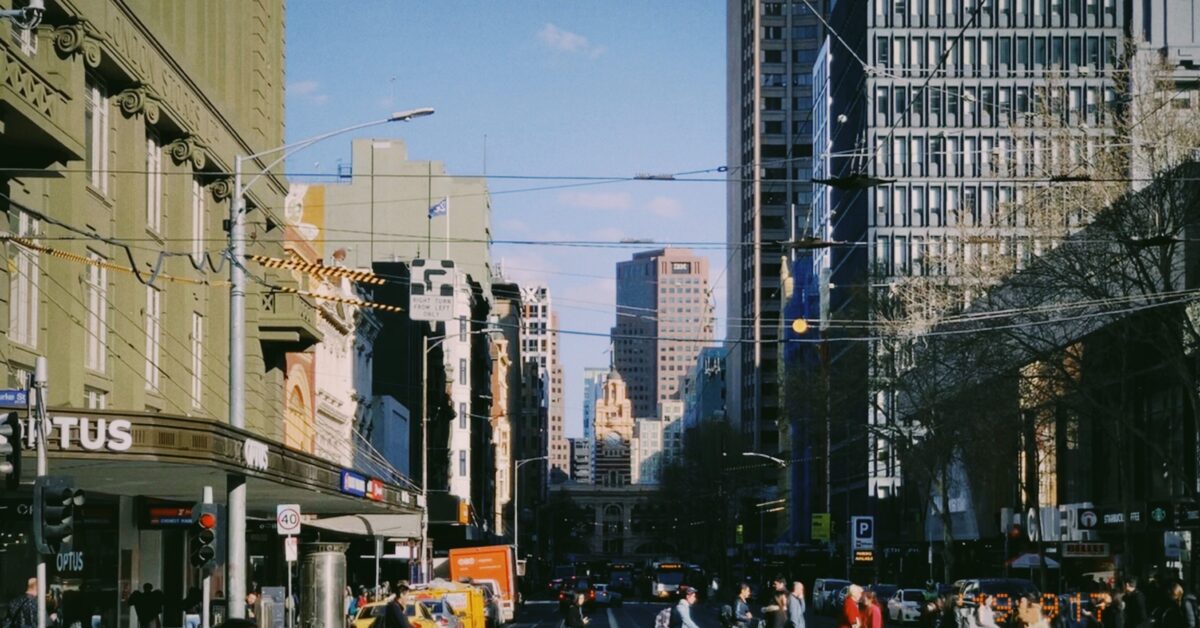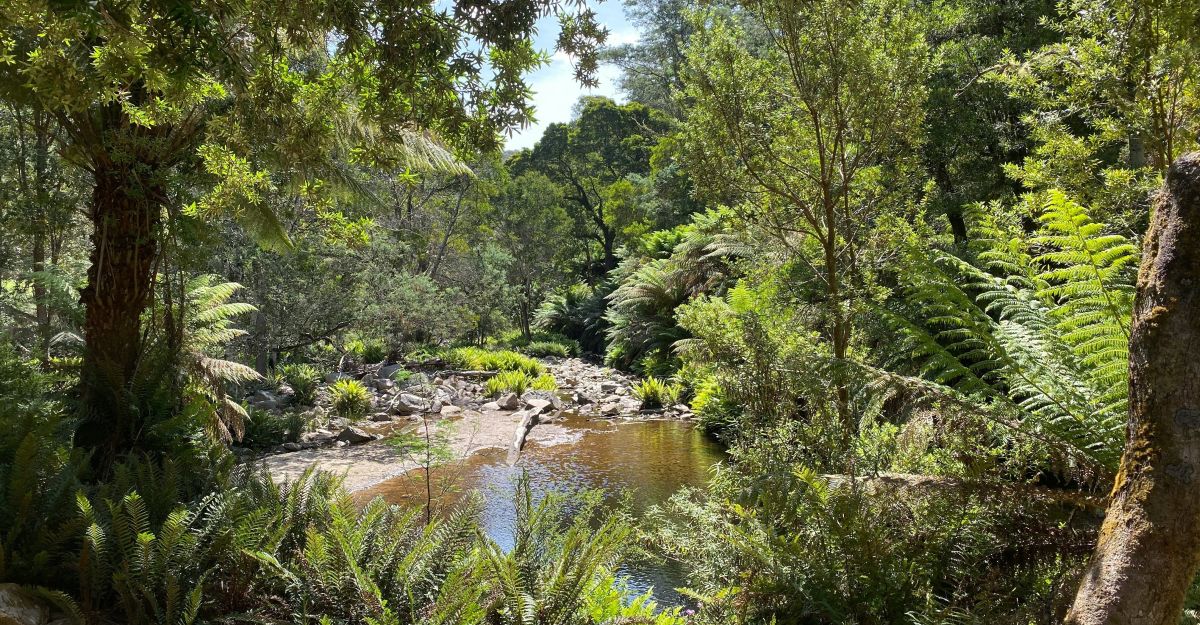The skinny man with his beanie and cane – I think he’s dying. His nose is turning blue at the tip.
*
I saw the boyish woman walking towards me along Paisley Street. Each time I see her I think she might look at me, know me and speak to me, finally, after all these months I’ve watched her from the window in my study that overlooks the street, turned away from my desk, tired or bored, while below she paces from the mall to the bridge just about every day, howling obscenities, squatting and smoking, pulling her pants down to wee between parked cars. But today, on Paisley Street, she just walked right past me with her feet at duck angles, her white eyes looking everywhere. She was carrying a tiny foam couch for kids.
*
He was there on the corner by the halal butcher, propped up by the brittle stiffness of his legs, his hands pressing into his cane. I notice that he keeps still for very long periods until something compels him to move (the sun?). Later, I went out to buy bread and he was lying on his back on the bench outside the TAB, the cane resting across his knees. I stopped. He was asleep. The skin of his face was red and dark like iron, the movement of breath in his chest delicate.
*
Someone left a plastic spoon in a bowl of congee next to some flowers and a bunch of green bananas on the pavement outside the nail salon on Barkly Street. A little way on, at the border of the suburbs, we saw a white cat in the shadow of a tree. We walked for two hours, you and I – didn’t we? – while night came on. Lights lit up every floor of the concrete-panelled tower and we kept hearing voices behind fences. We saw no-one. From the dim windows of that sagging mansion on the edge of Ballarat Road, an ancient damp smell blew all the way to the footpath.
At home, in bed, we listened to the guy next door with his raised voice. Was he alone? We couldn’t decide. Someone kept saying: “What’s going on, what’s going on.” Music played dully, only the most penetrating notes and the bass making it through the wall: Justin Bieber, music we didn’t know. Then, ‘My Heart Will Go On’; when it finished there was no silence, because he skipped back and replayed the final chorus again and again.
*
The coughing man – he spits, smiles and sings when he walks lopsidedly up and down Nicholson Street. His cough is so hacking that when I haven’t seen him for a couple of weeks I wonder if he’s still alive. Last night a man and a woman stood on the corner and steadied themselves on a Coles trolley, whispering – inside the trolley, an open leather handbag and plastic bags heavy with belongings.
*
Watching television after a day alone at my desk: a man’s wife died after a traffic jam on Mount Everest. Their pace was too slow – too many people had been allowed to hike and the route was clogged – then bad weather moved in. He reached the summit; she fell behind. Her oxygen ran out and she grew very weak and stopped being able to speak to him. He held her for a while as she drowsed, her lips open to the blue inside of her mouth, her eyes closing. The Sherpas told him to hurry, leave before his own oxygen depleted, said they would bring her down themselves; then that idea seemed to fade and soon they were just dragging him away from her. His wife lay there in the gathering snowstorm. Many people have died alone on Mount Everest.
I turned the TV off. Next door, through the wall, very faint – two girlish voices laughing and laughing.
*
The one-legged man starts fist fights. I saw him once in the alley, crutches abandoned, his lean body against the wall, a thin stream of piss between his legs.
*
The boyish woman sat next to a white-haired man in a polo shirt and they talked for nearly an hour on the bench across the street. From my desk where I wrote with the window open, I could hear the crack of tabs being pulled. He was smoking the whole time, one arm hovering above the arm rest, the other relaxed by his side. Her face was impassive. I kept expecting him to touch her, like a sexual overture, but he didn’t. A tattoo was turning blue on his forearm, an old tattoo, the kind people used to have. What did they talk about so calmly and for so long? Other days she’s marching, pointing at people and accusing them of incomprehensible things, threatening murder. She sat this afternoon with this white-haired man, the two of them like brother and sister, gentle, pulling their cans into their laps when the police drove past, one of her legs bouncing, the plastic Coles bag breathing in the wind. At some point I looked back at the desk, and when I next looked over, they were gone.
*
Walking past: “First I’m going to buy a small grenade, and then … ”
*
The woman who brushed against my arm – too quick and fidgety and hair too matted to be okay – was dressed for the office but it was a bit wrong, her bare splitting heels flattening the backs of her ballet slips: “I need a shower. Need a shower or something.”
*
I watched a movie about two men in a lighthouse. One murders the other for some reason – something about invoking a god. You didn’t watch it but worked next to me on your laptop with your headphones over your ears. I was working on being cold instead of lonely and trying not to look at you; I had wanted you to watch it with me. When the movie finished and the room was quiet, we heard movement in the house. The empty corridor creaked. Footsteps on the roof. We froze in fear and listened. They sounded young; they were chatting to each other and playing music on their phones.
I got up and moved across the loungeroom in my socks, looked up through the skylight above the sink – an inky head and shoulders. No face.
*
We have to separate every day, don’t we – to do our work. That’s what I must accept. Today the ghostly heroin regulars all crowded round a young, well-dressed white man peeling open a litre of pink yoghurt. In the shuttered doorway of the clubhouse they stood, swaying gently, their eyes crossed. What drug is that?
*
Sitting in the Edwardian park at the end of my street with its tiered lawns that look out over the kidney dish of the racecourse, I listened to the song of some bird speed up and slow down. A fragment of yellowed agapanthus leaf lifted from the grass, in a breeze, or because something moved it. A man in black wore sunglasses and held a big bunch of wattle. The haggard-looking woman with the pink sweater, attractive but with such exhausted energy, leaned against a tree and bent her knees to squat a little, stretching some unknown muscle. People have refined their critiques. This makes us lonely. But we need to be alone to experience relief from the suffering of the failure to be natural, the pain that comes from not telling the truth.
The sun came out just then but later in the day it rained.
*
The skinny man in the beanie has been given a wheelchair. He drifts along in the mornings, often driving it into gutters or getting stuck where the pavement swells with tree roots; he pushes the wheels weakly with his purple arms, so thin, no thicker than the pole of a parking sign. His elbows are powdery with white skin. Someone stood next to him this morning and spoke to him – with a shock I realised, as I walked past, that I had never heard his voice before. They were talking in Polish.
*
If I had a baby, I would put it to sleep in the second room, the one with no windows. One room back from the street.
*
Shreds of a pink condom wrapper on the park bench next to me, kind of cheerful in the morning sun. Is it bad to be sitting here? A second wrapper, blue, in the bushes. Oh: I walked past this bench last night around nine o’clock, waiting for you to come home from work. They turn the lights off in the park after dusk and then there’s only the clicking of crickets and the traffic sounds mellowed by shrubbery. It’s not particularly safe, someone told me, but I still walk here in the dark. Last night, moving across the lawn, I looked towards the blue atlas cedar – the same one that towers over the bench I sit on this morning – and thought I could see some shape. I looked, looked to see if it was someone. A glow: the tip of a cigarette. I turned my head forward and kept walking. Then, about fifty metres onwards, at the other end of the lawn, there was someone standing silently next to a bike. Something strange about how they moved their body slightly over the bike seat, the movements repetitive and unproductive. I didn’t look.
*
Three men in the bushes. One old but with a pale thin body like a child, saying insistently: “Who did it? Who did it?” The other two, forty years younger, just follow behind him or stand passively and watch as he picks around under trees and through garden beds. “You did it,” they say. One has a piece of purple tape hanging from his belt that drifts in the breeze.
I write this all down. It goes in my book and I read bits and pieces to you at night when you’re tired, when you get home from work and I’ve been spending the evening getting myself lonely, worrying about whether I can support myself or whether I’m useless and undeveloped, and whether I will finish what I’ve started with my work. “You did it.”
*
Through the window, from the bench across the street: “Rastifari! Rastifari! We move mountains! We … move … MOUNTAINS!”
*
“Don’t buy her wine. She can’t drink,” the kid at the bottle shop told us, “or she will actually die. We have a letter from her doctor.” She wears a dressing gown, pushes a walking frame and blows kisses at cars who stop for her at the lights. Her face is small and her eyes are squinted and black. She doesn’t remember us from one encounter to the next. When she stops to talk to us, she says we’re beautiful, then asks if we know where she can buy wine around here. “I live with sixty other people,” she says sadly.
*
If I have our baby, I write, it will be the first time I’ve brought something real into the world. Feeling very serious, I add: As an adult.
*
The boyish woman hasn’t been seen for weeks. The police called her Linda.
*
What you said to me last night before bed, after our long talk on the couch, the TV black and silent, the back door open to the dark: “There are times when you’re with people and there are times in life when you’re alone.”



